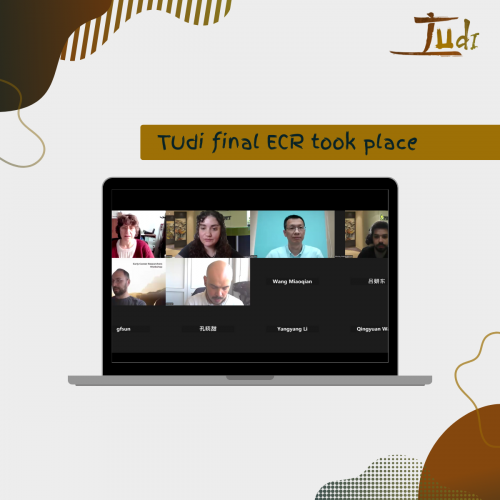TUdi’s final ECR took place!
On Tuesday, 22 April 2025, TUdi hosted its final Early Career Researchers (ECR) workshop, held in collaboration between Europe and China, ahead of the project’s end in June. The event was designed as an academic seminar, bringing together Early Career Researchers across Europe and China and featuring two lectures on relevant topics.
The first lecture was led by TUdi project partner Laura Zavattaro from the University of Turin, and was on ‘Soil nutrient budgets in manured cropping systems: evidence from a long-term experiment’. The lecture emphasised the value of long-term experiments over short-term studies, noting that soil changes occur slowly and that extended timelines allow researchers to revisit and reinterpret data as new questions arise. Her presentation demonstrated how long-term experiments can be used to apply a mass balance approach to nutrient cycling and other experimental questions, providing evidence for practices that enhance soil health and sustainability in cropping systems.
The second lecture was led by TUdi’s project partner Prof. Kun Zhu from China Agricultural University, on the topic of ‘Greenhouse gas emissions after application of soil organic amendments’. He began by highlighting the three major greenhouse gases—carbon dioxide (CO₂), methane (CH₄), and nitrous oxide (N₂O). A portion of the lecture covered field experiments showing that long-term no-tillage practices, while beneficial for soil organic matter (SOM) and structure, can lower soil pH and increase dissolved organic carbon (DOC) and mineral nitrogen levels, thereby elevating the risk of N₂O emissions. Notably, N₂O emissions were higher in cropping rows where fertiliser was applied, compared to interrows. These findings emphasised the complexity of managing organic amendments to balance soil health and greenhouse gas mitigation.
You can find a recording of the workshop below.
